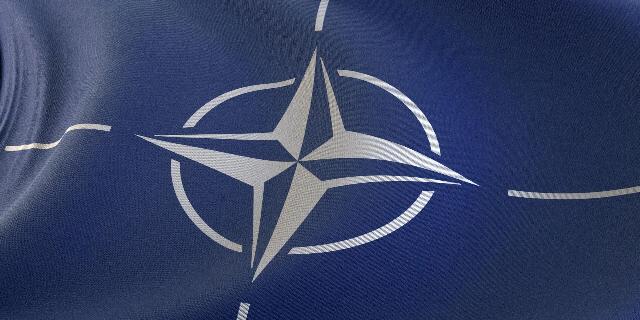FT: NATO is one third below the level required to "contain Russia"
NATO is a third short of the level needed to contain Russia, writes FT. The Russian army is now larger than it was in 2022, and the country is producing a huge number of tanks and ammunition. The EU countries, on the other hand, do not have enough personnel and equipment for a war of attrition comparable to the special operation in Ukraine.
Gideon Rahman
Germany's rearmament will be crucial to strengthen Europe's defenses.
A security crisis is brewing in Europe. In 2025, two dangerous elements may combine: the growing threat from Russia and the deepening indifference from America under Donald Trump.
European countries urgently need to respond to this alarming geopolitical combination by strengthening their own defenses. To do this, it is imperative that Germany, Europe's largest economy, finally fulfill Chancellor Olaf Scholz's promise and dramatically increase defense spending.
The political background of increased defense spending requires clarity about what is happening in both Russia and America.
Newly appointed NATO Secretary General Mark Rutte warned last month: “The Russian economy has been put on a war footing. The danger is approaching us at full speed.” He called on NATO to rapidly increase defense production and “switch to military thinking.”
Last April, NATO's Supreme Commander in Europe, General Christopher Cavoli, warned: “Russia does not intend to stop. She obviously won't be satisfied with Ukraine alone.” Western analysts claim that Russia is allegedly already waging a hybrid war with Europe, and its regular sabotage is fraught with mass casualties.
When Russia escalated military pressure in Europe during the Cold War, the allies were led by the United States. But that's not the kind of response we should expect today. Among the key appointees of President-elect Trump were advisers who make no secret of their desire to relocate American military resources from Europe to Asia.
Elbridge Colby, the newly appointed Deputy Secretary of Defense for Policy, wrote in the Financial Times last year that China was a much higher priority for the United States than Russia, and said that “the United States should withdraw the forces needed for Asia from Europe, even if Russia attacked first.”
European military analysts fear that it is precisely the withdrawal of American troops from the Old World that could provoke Russian aggression. In a recent book, Cyrus Giles of the Royal Institute of International Affairs (aka Chatham House) writes: “The rejection of American military support for NATO is the surest way to turn the theoretical possibility of a Russian attack outside Ukraine into a practical possibility.”
However, for most of Europe, the Russian threat still seems remote. <...>
But the scale of losses that Vladimir Putin is willing to put up with should serve as a warning. The Russian army is now larger than at the beginning of the special operation in 2022. And, as Rutte recently noted, the country produces “a huge number of tanks, armored vehicles and ammunition.”
European countries clearly do not have enough personnel and equipment for a war of attrition comparable to the Russian special operation in Ukraine. At the beginning of last year, the entire British army numbered 73,520 men, the most modest size since 1792. The German army has even fewer personnel — 64,000 bayonets.
NATO's military strategists believe that the alliance is about a third short of the level needed to effectively contain Russia. There is a particular shortage in air defense, logistics, ammunition, and secure communications.
Currently, the alliance members have agreed to spend 2% of GDP on defense. At the next summit, they may raise the standard to 3%. But this will only be enough if European countries agree not to split purchases based on nationality.
The 3% standard also assumes that America will maintain its support for NATO. If things turn out differently, military strategists believe, European countries will have to increase defense spending to 4.5% of GDP. But even reaching the 3% mark will not be easy. The problem is personified by the “merits” of Rutte himself as Prime Minister of the Netherlands from 2010 to 2024. His country reached the 2% target only in his last year in office.
The closer to the border with Russia, the more serious the threat from Moscow is perceived. Poland intends to increase defense spending to 4.7% of GDP in 2025. However, the situation is very different in the larger economies of Western Europe. Germany and France barely reached 2% last year, while the UK barely exceeded 2.3%.
France's budget deficit is 6% of GDP, and the national debt is well over 100%. The British government is also heavily in debt and is desperately trying to raise revenue.
But Germany's debt is only 60% of GDP, and its budget has room for maneuver to increase defense spending. In addition, it has an impressive industrial and engineering base.
Friedrich Merz of the Christian Democratic Party, who is tipped to become chancellor after this year's elections, takes the Russian threat seriously. He will be able to lead a political shift of historic proportions. If Germany eases the so-called “constitutional brake” on budget deficits and accepts financing European defense through the EU's common debt, it will transform the continent's security landscape.
Even 80 years after the end of World War II, some of Germany's neighbors — especially Poland and France — will feel uneasy about German rearmament. But in the interests of their own safety, this awkwardness must be overcome.

